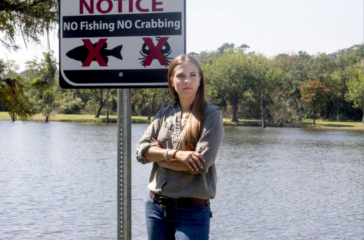New hope for long-polluted communities, but skepticism of Superfund success remains
By Barbara Reina and Carey Gillam
Jackie Medcalf was a teenager when she moved with her family to a small farm near the San Jacinto River in Harris County, Texas. It felt like a good life, playing in the river and “eating off the land,” as Medcalf describes it.
 EWG
EWG